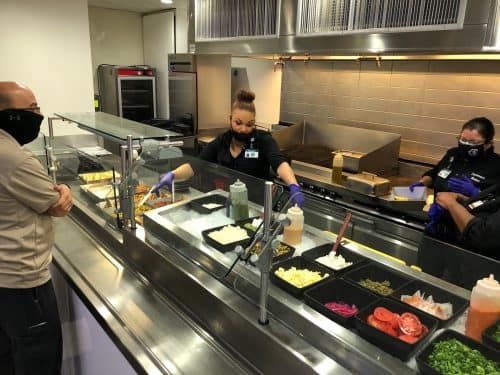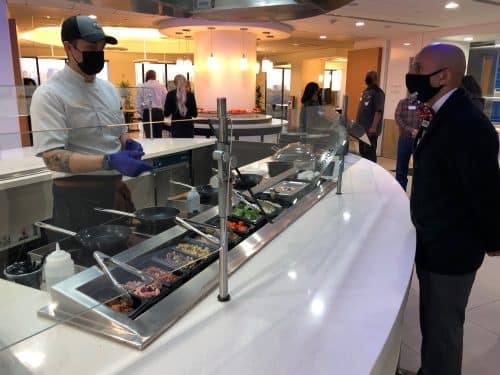Successful Self-Op Foodservice at a Health System
Successful Self-Op Foodservice at a Health System

Computrition loves hearing about successful self-operated foodservice—especially when it comes to a customer’s triumphs.
Shweta Misra (Administrative Director) and Christopher Okezie (Vice President of Operations) have made massive strides at Harris Health System. Their successful self-op foodservice has been attributed to a few key adjustments:
- Transitioned to self-operated foodservice by bringing management in-house
- Implemented healthier options, including more plant-forward dishes
- Created new recipes and retail stations to entice patrons
Challenges
Among the challenges Harris Health System faced, Misra and Okezie highlighted the following.
Employee buy-in
The team needs to be united and committed to the common goal of achieving successful self-op foodservice for patients, staff, and customers.
Inflation and supply chain issues
Higher-quality, organic, and/or local ingredients will likely result in greater food costs.
Executive approval
Large-scale developments require presenting a business plan to senior leadership, who must be convinced that the adjustments are necessary.

Automation Software
Luckily, automation software can play a vital role in helping Food & Nutrition Services to attain successful self-op foodservice.
Inventory
With accurate inventory management, foodservice staff can track waste and thus be more efficient and cost-effective. Software can also automate item fulfillment, floor stock requisitions, and physical inventory valuation. The information collected can then be used to make data-driven decisions.
Retail
A point-of-sale system increases throughput when customers have their preferred payment options: payroll deduction, declining balance, credit cards, etc. Data can also show which items are performing well, thereby improving forecasting.
What’s more, caregivers may only have thirty minutes to refuel. Misra explained, “By the time they reach the bistro, order food, and stand in line to pay for their food, their break is almost over.” Retail online meal ordering helps staff maximize their crucial break times, giving them more time to eat and recharge.
Staff and guests are more likely to stay on-site when they feel the hospital meets their needs. A variety of cuisines and healthy options will inspire customer loyalty and even, as Harris Health System demonstrates, employee retention.
Tray Tracking
Tray delivery delays can negatively impact a hospital’s reputation and patient satisfaction. Furthermore, incorrect orders can lead to complications, postponed surgeries, or even fatalities. Tray tracking software can ensure each patient receives the proper items (or no food if NPO). Per Misra, tray tracking “has been a key tool in managing patient safety.”
Data Ownership
Collaboration
We are incredibly honored to partner with Harris Health System in pursuit of their successful self-op foodservice goals. In fact, they were one of the Innovator Award winners in our 2023 Prodigy contest.
Watch the below video to see the award presentation during our 2023 Virtual User Conference!
We are here to help! Please get in touch with the Computrition team at info@computrition.com if you have any questions.